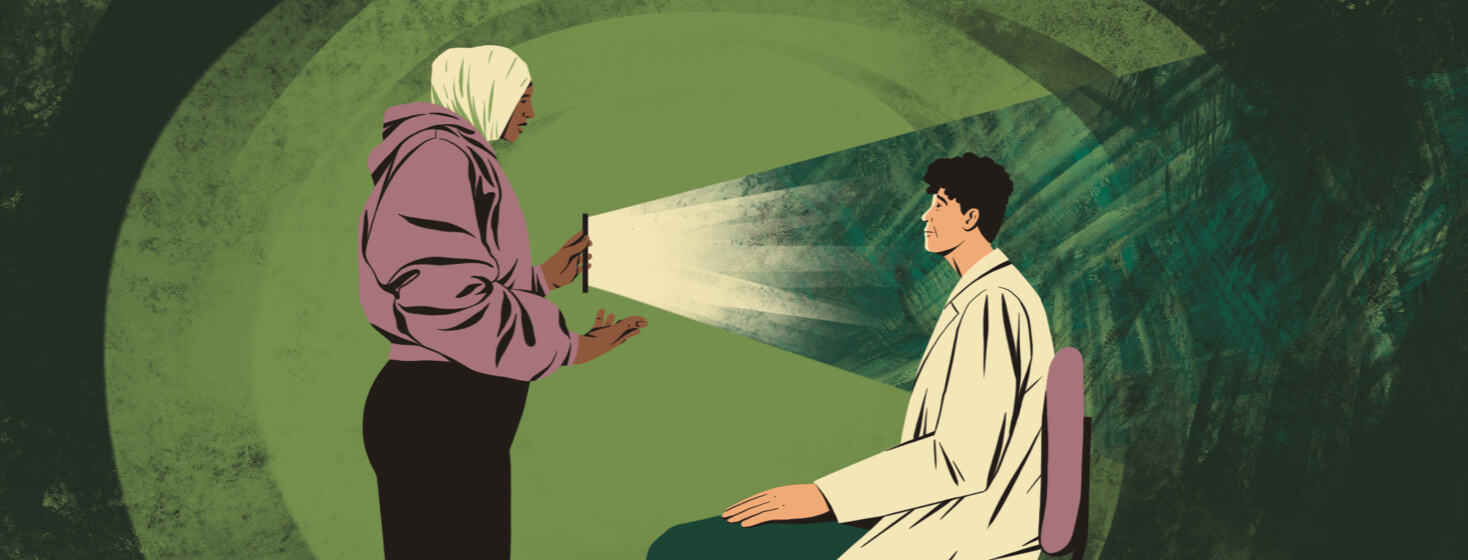How I Advocate For Myself at the Doctors
Going to any doctor can be nerve-wracking. Going to a specialty doctor, whether it be an eye doctor or an endocrinologist for thyroid eye disease (TED), can be overwhelming, especially at the beginning. I did not know how to approach it. I did not know what to ask. Now though, I have been to enough appointments about my TED to know how to advocate for myself in those situations.
Ways I advocate for myself at my appointments for TED
Have a doctor I trust
First, and most importantly, I found doctors who took me seriously. Who took the time at all my appointments to let me ask questions and valued my perspective. When going through an uncertain situation, it is important to have people in your corner who will be respectful towards your feelings. Being able to trust my doctors with what I was feeling made the experience of having TED less scary. I knew I could trust their expertise and knew I could express to them whatever I was feeling with honesty.
Use my notes app
Between doctor’s appointments, I kept an ongoing list in the notes app on my phone about what I was experiencing. What new symptoms came up, and how my existing symptoms would change. I wrote it all down. It made going to an appointment less overwhelming because I had something I could refer to when speaking with the doctor.
Another thing I would do in-between appointments was keep a list of questions on my notes app that I could ask when I was there. Sometimes my questions would be answered before I could ask just by talking with my doctor. Other times, a question I would write down would no longer be relevant to what I was experiencing weeks later.
Through this process, I had to reconcile with the fact that there are no stupid questions. How I was feeling was valid. There were many moments where I would write a question down and think, is this valid or just my anxiety in the moment? Even if it was just my anxiety, it was still a valid question. Feeling anxiety over something does not automatically negate the value of that question. If anything, it allows the question to be remembered as an important question to ask.
Being patient with the process
Finally, I had to recognize and accept that this was going to be a process that I had to be patient with. Once I could accept that, then I could start advocating for myself better. I could be present in the moment and work with my doctors to find ways that would help me cope while I was going through the ups and downs that are this disease. There is no one-step, cure-all with TED. Everybody is different and every body is different. I wasn’t going to take a magic pill and be healed within a matter of months. It was going to take time for my body to recover and heal. Almost four years into this journey and my eyes are still trying to find what that new normal looks like.
Good news at my last appointment
I recently went to my annual eye doctor checkup. The funny thing about going to the eye doctor so many times now is that I know the drill. I know how to do the tests. I know how each appointment is structured. I asked a lot of questions. I didn’t second-guess what I asked, and I received respectful answers. I’m a pro at this point. My doctor even remarked on how many times I had been to the eye doctor with TED. Too many times to count. I got some good news. My eyes are stable, and my optic nerves are healthy. After so many ups and downs, the good news is worth every bit of celebration.

Join the conversation